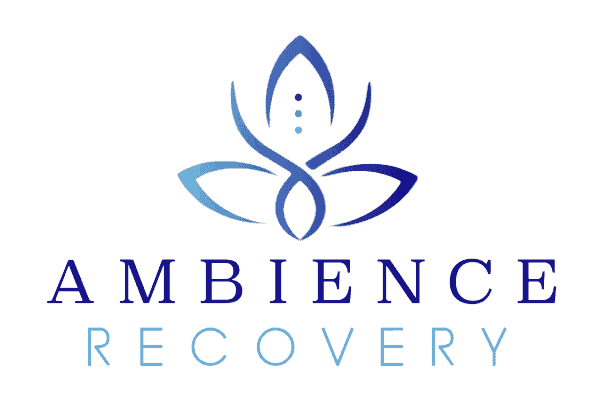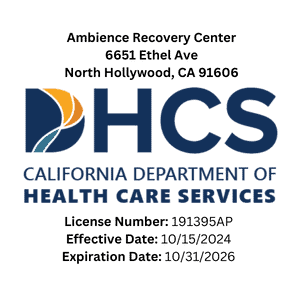Key Takeaways
- Relapse is a gradual process, not a sudden event.
- It happens in three stages: emotional, mental, and physical.
- Recognizing early warning signs can prevent full relapse.
- A relapse prevention plan strengthens long-term recovery.
- Recovery is a journey where learning from setbacks is part of success.
Introduction
Recovering from drug or alcohol addiction is a journey full of courage, growth, and healing. But like any tough journey, it comes with challenges. One of those challenges is relapse.
Many people in recovery experience relapse at some point. It’s important to know that relapse is not failure. It doesn’t erase the progress you’ve made. It simply means that it’s time to adjust, learn, and strengthen your recovery plan.
Understanding the three stages of relapse and their warning signs can make all the difference. When you know what to watch for, you can take action before things spiral out of control.
Understanding Relapse in Addiction Recovery
Addiction is a chronic condition. That means it doesn’t just go away overnight. Like other chronic illnesses such as diabetes or asthma, it requires ongoing care and attention.
Relapse often happens gradually. It’s not like someone wakes up one morning and decides to use again. Instead, it builds over time. Small warning signs grow bigger until, if nothing changes, a return to drug or alcohol use happens.
Learning to spot these signs early can help prevent a full relapse—and keep your recovery journey moving forward.
The 3 Stages of Relapse: An Overview
Relapse happens in three distinct stages: emotional relapse, mental relapse, and physical relapse.
Each stage gives warning signs that something isn’t right. If you catch the signs early enough, you can take steps to stay on track before using drugs or alcohol becomes a real risk.
Stage 1: Emotional Relapse
In emotional relapse, a person isn’t thinking about using yet. However, their emotions and behaviors start setting the stage for trouble.
You might notice yourself bottling up feelings instead of sharing them. You may start pulling away from friends, family, or support groups. Maybe you stop taking care of yourself—skipping meals, not sleeping well, or ignoring healthy routines.
Other warning signs of emotional relapse include feeling overwhelmed, anxious, or easily irritated. You might miss support group meetings or stop practicing the healthy habits that helped you early on.
The biggest risk during emotional relapse is ignoring your emotions. When feelings are stuffed inside, they don’t go away—they build up. If they aren’t dealt with, they can lead straight into the next stage.
Stage 2: Mental Relapse
During mental relapse, part of you wants to stay sober, but another part starts thinking about using again.
This stage can feel like a battle inside your mind. You might start craving your drug of choice. You may find yourself remembering the “good times” of using and forgetting all the pain it caused. You might think about old friends or places tied to your addiction.
Sometimes, people even start planning ways to relapse without getting caught. They might tell themselves, “Just one time won’t hurt” or “No one has to know.”
Mental relapse is very dangerous because the longer you stay in it, the harder it is to resist. But at this stage, it’s still possible to turn things around. Talking to someone, going to a meeting, or using your coping skills can help stop relapse in its tracks.
Stage 3: Physical Relapse
Physical relapse is when you actually drink, use drugs, or act on the behavior you’ve been fighting against.
At first, it might be just “one drink” or “one time.” But addiction is sneaky. That one time can quickly spiral back into old habits.
Once physical relapse happens, it’s much harder to stop without getting extra support. That’s why recognizing and addressing emotional and mental relapse early is so important.
Remember: physical relapse doesn’t mean you’re a failure. It simply means you need more help and support to continue your recovery journey.
Why Early Warning Signs Matter
One of the best ways to protect your recovery is to pay close attention to early warning signs.
If you notice yourself feeling stressed, skipping meetings, isolating, or craving substances, these are signals. Your mind and body are trying to tell you something is wrong.
The earlier you recognize these signs, the easier it is to stop the relapse process. You don’t have to wait until you’re in deep trouble. You can get help, adjust your routine, and find new ways to cope—before you reach the final stage.
Developing a Relapse Prevention Plan
A relapse prevention plan is a powerful tool for staying strong in recovery. It’s like having a roadmap to help you navigate tough times.
A good plan includes knowing your personal triggers—people, places, emotions, or situations that tempt you to use. It also includes coping strategies like calling a sponsor, going to a meeting, exercising, or practicing mindfulness.
Staying connected to your support network is a huge part of relapse prevention. This includes family, friends, sponsors, and counselors. You should also know exactly what steps to take if you spot warning signs, like reaching out for help immediately.
Creating and updating your prevention plan is a normal part of healthy, long-term recovery. It keeps you prepared and gives you confidence when challenges arise.
How Addiction Treatment Programs Help Prevent Relapse
Addiction treatment programs like those at Ambience Recovery are designed to teach relapse prevention skills and support your recovery every step of the way.
In treatment, you’ll learn how to identify emotional, mental, and physical warning signs. You’ll practice coping strategies through therapy, group sessions, and personal reflection. Treatment programs also help you build healthy daily routines and strong support systems that make relapse less likely.
By working with professionals, you can develop a personalized relapse prevention plan that fits your unique journey. And if relapse does happen, you’ll have the tools and support to get back on track quickly.
Conclusion
Relapse is often part of the recovery journey, but it doesn’t have to mean defeat.
By understanding the three stages of relapse—emotional, mental, and physical—you can spot problems early and take action to protect your sobriety.
Recovery is not about being perfect. It’s about learning, growing, and getting stronger every day. And no matter where you are in your journey, help is always available.
Call Ambience Recovery today at 866-721-7470 to find compassionate support, expert care, and the tools you need for long-term healing and success.
FAQs About The Three Stages of Relapse on Drugs or Alcohol Addiction
What are the three stages of relapse in addiction?
The three stages of relapse are emotional relapse, mental relapse, and physical relapse. Understanding these stages can help individuals recognize the risk of relapse and take appropriate action.
What is a sign of emotional relapse?
A sign of emotional relapse is when an individual begins to experience feelings of stress, anxiety, or frustration without engaging in substance use. This emotional state can lead to thoughts about using drugs and alcohol as a coping mechanism.
How can one recognize the early warning signs of relapse?
Recognizing the early warning signs of relapse involves paying attention to changes in mood, behavior, and thought patterns. Signs may include increased isolation, neglecting self-care, or cravings for substances, which may lead to relapse if not addressed.
What are some prevention strategies to avoid relapse?
Effective prevention strategies include developing a strong support network, practicing stress management techniques, attending support groups, and staying engaged in healthy activities that promote the recovery process.
What happens during the mental relapse stage?
During the mental relapse stage, individuals may start to fantasize about using drugs and alcohol again, struggle with cravings, and begin to justify past substance use. This stage is crucial to recognize as it can lead to a physical relapse if not addressed.
How does emotional relapse lead to a relapse?
Emotional relapse can lead to a relapse by creating a mindset that is vulnerable to using substances again. If feelings of stress and anxiety are not managed, they can escalate into mental and eventually physical relapse.
What is the physical relapse, and why is it considered the final stage?
Physical relapse is the final stage of relapse, where the individual actually returns to using drugs and alcohol after a period of sobriety. It is considered the final stage because it is the culmination of the preceding emotional and mental stages.
Why is it important to recognize signs of mental relapse?
It is important to recognize signs of mental relapse because early intervention can prevent a full-blown relapse. By identifying these signs, individuals can seek help and implement coping strategies to maintain their recovery journey.
What role does emotional relapse play in the stage of recovery?
Emotional relapse plays a critical role in the stage of recovery as it is often the first stage where an individual begins to experience thoughts and feelings that can jeopardize their sobriety. Recognizing this stage allows for early intervention and support.
How can someone effectively manage the risk of relapse in their recovery process?
To effectively manage the risk of relapse in the recovery process, individuals should develop a comprehensive relapse prevention plan that includes identifying triggers, practicing healthy coping mechanisms, and maintaining strong connections with support systems.
Resources
https://pmc.ncbi.nlm.nih.gov/articles/PMC4553654/
https://www.sciencedirect.com/science/article/pii/S0025556424000440
https://adf.org.au/reducing-risk/relapse/
Katie is a Licensed Clinical Social Worker who has worked as a primary therapist, supervisor, and now clinical director for SUD/MH treatment centers for the past 12 years. Katie is trained in Brainspotting, EMDR, Internal Family Systems and Dialectical Behavior Therapy and is passionate about treating substance use disorders, trauma and grief.






